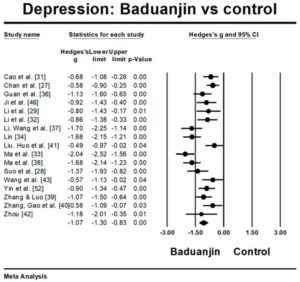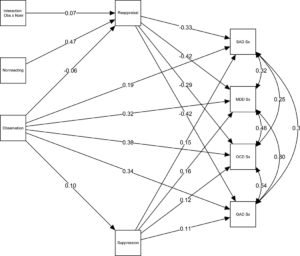Mindfulness Therapies May Be Cost-Effective for the Treatment of Mental Illness
By John M. de Castro, Ph.D.
“[Mindfulness] is a cost-saving alternative to treatment as usual over the trial duration from both a healthcare and a societal perspective for patients with a diagnosis of depression, anxiety or stress and adjustment disorders.” – Sanjib Saha
There has developed a large volume of research findings supporting the effectiveness of mindfulness training for the treatment of mental illnesses. Effectiveness has been documented for a wide variety of psychological disorders including anxiety, depression, stress responses, obsessive-compulsive disorder, eating disorders, addictions, and major mental illnesses. But there is little understanding of the cost-effectiveness of these mindfulness trainings. So, it is important take a serious look at the costs of implementing these therapies in comparison to the healthcare savings produced and/or the costs of other treatments of similar effectiveness.
In today’s Research News article “Are acceptance and mindfulness-based interventions ‘value for money’? Evidence from a systematic literature review.” (See summary below or view the full text of the study at: https://www.ncbi.nlm.nih.gov/pmc/articles/PMC6588093/), Duarte and colleagues review and summarize the published studies of the cost-effectiveness of acceptance and mindfulness-based interventions. The following acceptance and mindfulness-based interventions were identified: Mindfulness Based Cognitive Therapy (MBCT), Mindfulness-Based Stress Reduction (MBSR) , Dialectical Behavior Therapy (DBT), Acceptance and Commitment Therapy (ACT), mindfulness‐based relapse prevention (MBRP), and other mindfulness meditation and mindfulness training. They identified 10 published studies.
They reported that the published studies found mixed results depending on the type of economic analysis and the comparator condition. In general, they report that acceptance and mindfulness-based interventions are mildly cost-effective for the treatment of depression, emotional unstable personality disorder, and general mental health conditions. It is clear, however, that this issue needs to be further studied.
In an age of high healthcare costs, it is important to perform economic analyses of treatments. Before widespread implementation of a treatment it is important to know that the costs of implementing the treatments are less than the healthcare savings produced. Various acceptance and mindfulness-based interventions can be expensive to implement and the savings produced hard to evaluate. So, the analysis has produced ambiguous results. One way to improve the cost-effectiveness of acceptance and mindfulness-based interventions is to implement the therapies online or with smartphone technologies. This markedly reduces the costs while maintaining effectiveness.
So, mindfulness therapies may be cost-effective for the treatment of mental illness.
“MBSR reduced costs to society by $724 per year in comparison to usual care, and reduced healthcare costs to payers by $982; it also increased participants’ quality-adjusted life years.” – Patricia Herman
CMCS – Center for Mindfulness and Contemplative Studies
This and other Contemplative Studies posts are also available on Google+ https://plus.google.com/106784388191201299496/posts and on Twitter @MindfulResearch
Study Summary
Duarte, R., Lloyd, A., Kotas, E., Andronis, L., & White, R. (2019). Are acceptance and mindfulness-based interventions ‘value for money’? Evidence from a systematic literature review. The British journal of clinical psychology, 58(2), 187–210. doi:10.1111/bjc.12208
Abstract
Objectives
Acceptance and mindfulness‐based interventions (A/MBIs) are recommended for people with mental health conditions. Although there is a growing evidence base supporting the effectiveness of different A/MBIs for mental health conditions, the economic case for these interventions has not been fully explored. The aim of this systematic review was to identify and appraise all available economic evidence of A/MBIs for the management of mental health conditions.
Methods
Eight electronic bibliographic databases (MEDLINE, MEDLINE In‐Process & Other Non‐Indexed Citations, EMBASE, Web of Science, NHS Economic Evaluation Database (EED), Database of Abstracts of Reviews of Effects (DARE), Health Technology Assessment (HTA) database, and EconLit) were searched for relevant economic evaluations published from each database’s inception date until November 2017. Study selection, quality assessment, and data extraction were carried out according to published guidelines.
Results
Ten relevant economic evaluations presented in 11 papers were identified. Seven of the included studies were full economic evaluations (i.e., costs and effects assessed), and three studies were partial economic evaluations (i.e., only costs were considered in the analysis). The A/MBIs that had been subjected to economic evaluation were acceptance and commitment therapy (ACT), dialectical behaviour therapy (DBT), mindfulness‐based cognitive therapy (MBCT), and mindfulness‐based stress reduction (MBSR). In terms of clinical presentations, the evaluation of cost‐effectiveness of A/MBIs has been more focused on depression and emotional unstable personality disorder with three and four economic evaluations, respectively. Three out of seven full economic evaluations observed that A/MBIs were cost‐effective for the management of mental health conditions. Nevertheless, the heterogeneity of included populations, interventions, and economic evaluation study types limits the extent to which firm conclusions can currently be made.
Conclusion
This first substantive review of economic evaluations of A/MBIs indicates that more research is needed before firm conclusions can be reached on the cost‐effectiveness of A/MBIs for mental health conditions.
Practitioner points
The findings of the review provide information that may be relevant to mental health service commissioners and decision‐makers as all economic evidence available on acceptance and mindfulness‐based interventions for mental health conditions is summarized.
Evidence relating to the cost‐effectiveness and cost‐saving potential of acceptance and mindfulness‐based interventions is focused mainly on depression and emotional unstable personality disorder to date.
Heterogeneity in the specific forms of acceptance and mindfulness‐based interventions may limit generalizability of the findings.
The number of health economic evaluations relating to acceptance and mindfulness‐based interventions remains relatively small. Further research in this area is required.
https://www.ncbi.nlm.nih.gov/pmc/articles/PMC6588093/








